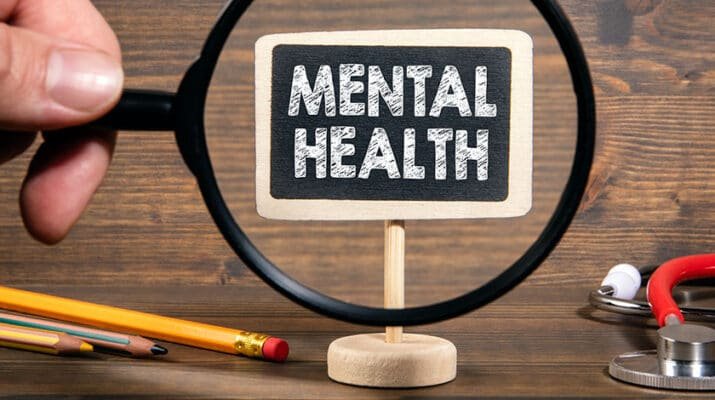By Deborah Jeanne Sergeant
Pandemic adjustments, economic difficulties, school violence, racial tension: a lot of big issues have caused some major upheavals in the lives of American families.
The stress from these challenges affects children’s mental health. As they return to school, that additional stressor may cause some to manifest mental health issues.
“Data and anecdotal reports continue to highlight the mental health crisis among America’s youth,” said Monique M. Winnett, psychologist and licensed clinical psychologist at St. Joseph’s Health. “A notable decline in youth mental health was evident prior to the COVID-19 pandemic and related changes and concerns have exacerbated preexisting trends.”
Although the decrease COVID-related restrictions should continue to promote a more normal school experience, Winnett does not see youth mental health concerns dissipating soon. She continues to see rates of depression and anxiety higher than pre-pandemic levels.
“Decreased socialization and increased use of electronics has likely contributed to this trend,” she said. “In addition, the acuity of symptoms appear escalated, as are rates of youth suicide.”
The stress within their home has also affected youth, as families feel concern about their income, work, housing and relationships. Winnett added that spikes in parental mental health issues “impact a youth’s behavior, mood and performance when in school.”
She also said that youth have reported increased rates of racism and bullying.
“Of note, LGBTQ youth are significantly more likely to experience behavioral health symptoms than youth who identify as heterosexual,” Winnett said. “Trends of increased fighting and violence within schools continue to be troublesome. Feeling unsafe at school, including fears of gun violence due to ongoing school shootings, prove distracting and increase anxiety.”
Current events can cause anxiety about returning to school. Fearing violence, bullying, or becoming ill from COVID-19 can cause some children to not want to attend school.
“Maintain a calm, supportive environment at school and home,” said Jennifer Meyers, who holds a master’s degree in school psychology and is nationally certified as a school psychologist. “When adults validate and co-regulate, it helps. Limit media exposure, because 24-hour news doesn’t allow your minds to rest. Children need to feel safe.”
Meyers has practiced school psychology for 20 years in Phoenix Central Schools and is a CNY representative of the New York Association of School Psychologists.
It may seem like knowing all about a topic would help children feel safer. However, the opposite can happen. While sensible caution is warranted, children should not have so much information that they obsess over what could happen.
Meyers said that keeping kids connected can help them feel more secure. Socializing both with peers and adults “helps them build the skills they haven’t developed. Take them to playgrounds and parks. Get them involved in peer activities. This supports a culture of connection.”
It also helps for children to feel a sense of predictability with a printed schedule. Consistent bedtimes, mealtimes and other home routines help children know at least in part what to expect.
Meyers also recommends children have sufficient down time for craft, free play, creativity, going outdoors and pleasure reading, which can help mitigate stress.
Shelagh Thompson, mental health counselor with Oswego Health, encourages parents to both talk with children and listen to their concerns.
“Kids will tell you a lot if you listen to what they are telling you and you validate their feelings,” she said. “Listen to what they’re saying and respond in a sense that they know you support them.”
As a parent, it is easy to slip into the “fix-it” mode or become judgmental and forget that sometimes children just want to vent and feel understood. Simply listening can help children feel validated and that their parents care about them.
“They know you will be there to support them,” Thompson said. “It will help them come to you when serious stuff is happening.”
Oftentimes, children open up about their concerns while occupied with something else, such as a car ride, while performing household chores or during dinner. Trying to purposefully schedule time to only talk will likely backfire with tweens and teens.
“Don’t judge them when they tell you stuff, even if it’s cringey,” Thompson said. “The more you listen and don’t necessarily add your two cents, the more they’ll tell you.”
She wants parents to realize that the massive changes taking place in the past two years has been a difficult adjustment for children and teens. It may take more time to feel safe in school and not anxious about the future, socializing and friendships.
“It’s not something that can change overnight,” Thompson said. “Hopefully, as a sense of normality returns, kids will adapt as they are resilient and can adjust to their circumstance.”

